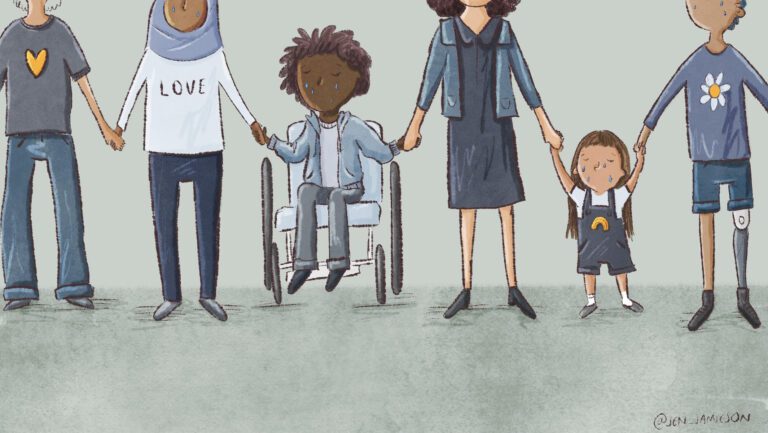Educators, and really most people who work in a school setting, are amazing at helping one another. In the last three days alone, my colleagues and I have gone above and beyond for one another. We’ve taken down leftover projector hardware from classroom ceilings, picked up copies for our colleagues, reminded each other to sign up for insurance, and found fans for hot classrooms. The community spirit is one of the best things about educators in my mind. We support one another and generally don’t ask for anything in return for the extra work or time spent supporting colleagues.
We help because it’s in our nature, but there are other reasons too. One of the reasons educators do so much for one another is because we are often our only real support systems. In many schools, we are functioning with little money, a lack of support, and with high expectations. We help one another because we are all we have.
At what point, however, does helping become the problem?
We have huge workloads and limited resources. Any of us would drop what we’re doing to help troubleshoot technology, assist with planning, or help with other small tasks. But what about when that help demands significant time, energy, or resources? How can we support one another without adding to the cycle of overworking educators?
There is a solution: compensation.
When a colleague goes above and beyond for us, when they spend extensive time or effort to help us, when we benefit from their years of experience or training, we should compensate them. Instead of assuming that our coworkers’ emotional, intellectual, or physical labor is available on demand, we should provide our colleagues with some form of compensation. Educators need to be compensated for our work, our experience, our knowledge, and our training, even by one another.*
Compensation can look like a lot of things. When someone uses their time, effort, or experience for us, the best start is a grateful note or email. In addition to that, we can:
- Buy or bring them lunch or coffee.
- Bring their favorite treat.
- Cover their class so they can get some work done.
- Cover their lunch or hall duty.
- Bring them something nice or something they need for their classroom.
- Write a bragging note about them to their supervisor.
- Help with paperwork or classroom tasks.
- Get them a gift card.
- Pay them if it’s a big enough project.
One of the biggest complaints educators have is being underpaid and underappreciated for our work. If we start taking our work seriously enough for compensation, maybe others will as well.
Our work has value. Compensating one another reminds us of that truth.
*Note: It’s particularly important that we compensate BIPOC for their time, knowledge, and emotional labor when they lead any kind of anti-racism training. I want to honor that the idea of extending the importance of compensating educators came from the people doing and leading work in those spaces. I have personally been inspired on this topic by Leah Lakshmi Piepzna-Samarasinha, author of Care Work: Dreaming Disability Justice and the Facebook groups Unlearning Racism and Anti-Racist Education.
What do you think about educators compensating one another for significant labor? Let us know in the comments!
Looking for more articles like this? Subscribe to our newsletters.


